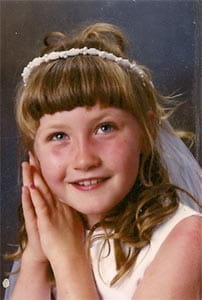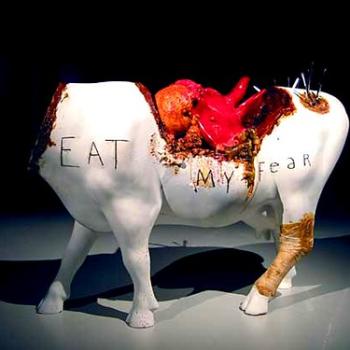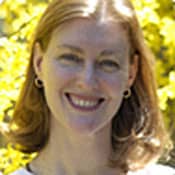Don't let your life be sterile. Be useful. Blaze a trail. Shine forth with the light of your faith and of your love. ~ Saint Josemaria Escriva, from "The Way"
Danielle Rizzo is 13 years old and still cannot speak. Nine years ago, when she was diagnosed with autism, her parents were devastated.
"In the beginning, you focus on the negative," says her father, David Rizzo, author of the new book, Faith, Family, and Children with Special Needs: How Catholic Parents and Their Kids with Special Needs Can Develop a Richer Spiritual Life.
"When parents first find out they have a child with a serious disability and it's not going away, it's a huge challenge to their faith. They start to question, 'Why did this happen to me? Why did God do this? Why did he abandon us?' We all went through it. It's perfectly natural and normal. With the book I wanted to show that while the first experience is tough, as you let it play out, it can become quite an amazing experience of God, of love, and of your family. There's a quote by Charlie Chaplin that I like: 'Life is a tragedy in close-up, but a comedy in long-shot.'"
 Like so many parents of special needs children, the gift of their daughter's disability, experienced through their faith, has gained David and his wife extraordinary courage and insight.
Like so many parents of special needs children, the gift of their daughter's disability, experienced through their faith, has gained David and his wife extraordinary courage and insight.
"Having a child with a serious disability, which seems catastrophic at first, is one of greatest ways my wife, Mercedes, and I have found to deepen our own spirituality," says David. "You recognize your need for God and so you learn more from that situation—and it seems so strange because it's the exact opposite of what you think when it first happens."
Through prayer and perseverance, he developed steps we can all use to mine the riches hidden in our own crosses.
"The book is about learning to see God's actions in your life and in the life of your family, and to see your child and their disability—or a feature of their disability—as an important way to learn about God. In Danielle's case it was her silence. She makes a lot of noise but cannot talk, so I took that absence of words as a way to think about God's silence."
He continues, "Aside from scripture, God doesn't speak to us in words so much. In our daily encounters, typically, he speaks through feelings in the heart, stirrings, emotions, direct experiences, reflection, and prayer. It was important for me to see that an aspect of her disability was a quality of God.
"The next step is to recognize that we are all made in the image and likeness of God, and this is equally true of our children and friends with special needs. They are just as worthy of our love and God's love."
Asked how his focus on Danielle's likeness to God helped him grow, he responds, "The Catholic liturgy is very helpful to these children. The sacraments themselves are a visible sign of the invisible God for all of us, but for children with special needs, in particular with autism and often with Down syndrome, the visual sense is pretty well preserved. The tangible qualities of the sacraments make God meaningful for them.
"And while considering the visible elements of faith as a possible access point for kids with disabilities, I had this idea that maybe I should explore looking at God in a similar way in order to connect more with Danielle. It's been a great way for my own spirituality to deepen. I began to look more at the visual—statues, icons, stained glass, and the sacramentality of nature—all the ways I would normally help Danielle to access her faith—and as a result, mine became much finer tuned.
"I started to feel a new connection to God, and even began to know what to focus on with my daughter. And then the experience of the liturgy of the Mass itself became this amazing spiritual opportunity, not just for her, but for us. The Catechism speaks of the inherent dignity of the human person. We all have that divine spark, and learning to see that in your special needs child, that's what I hope to leave people with."
The spiritual journey has been rewarding, and by facing each obstacle as an opportunity, this inspiring family is bearing fruit in other ways that benefit families facing similar challenges.
David is a physical therapist by profession, who works with special needs adults, and Mercedes is a certified teacher, so the couple has always been unusually proactive with meeting their daughter's developmental needs. Having used secular PECS (Picture Exchange Communication System) materials with success, they recognized the need for simple, clear visual cues in her religious education process, as well.





